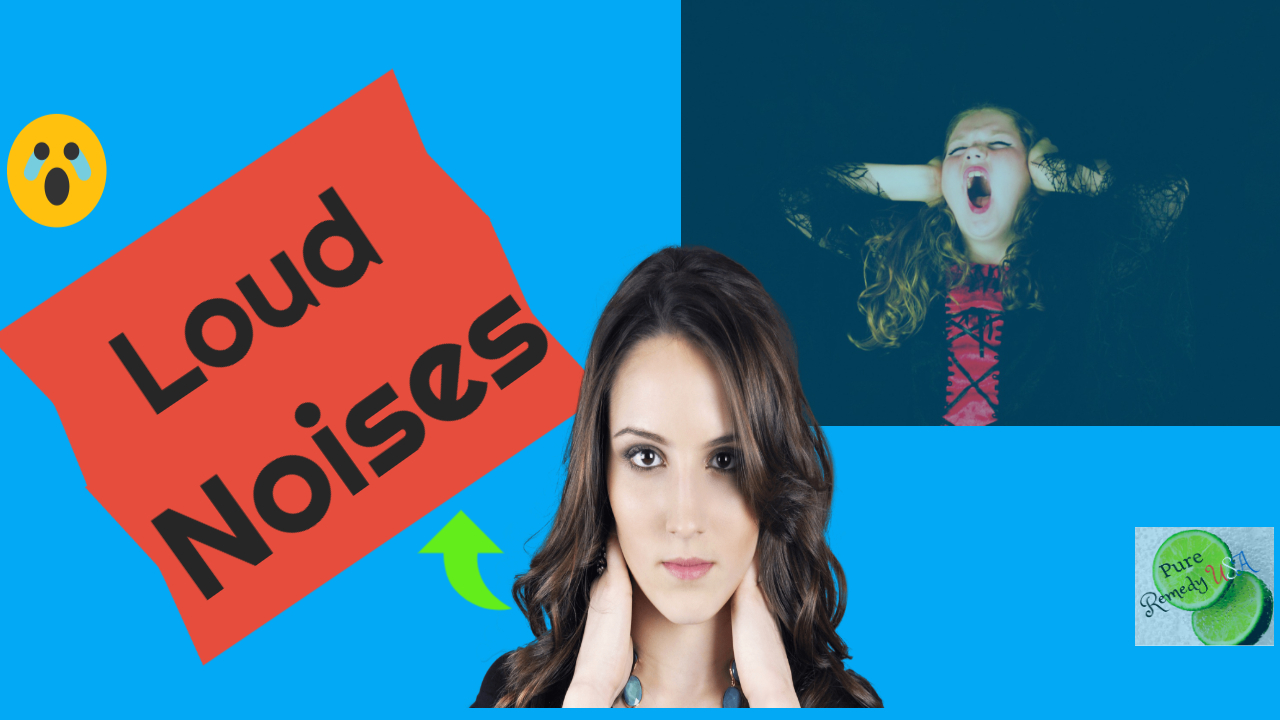Premium Only Content

Understanding The Fear Of Loud Noises (Phonophobia)
Visit us at * http://pureremedyusa.com/
Visit us on Facebook * https://www.facebook.com/blantz2
Loud noise, especially when unexpected, can be unpleasant or jarring for anyone. If you have phonophobia, your fear of loud noise may be overwhelming, causing you to panic and feel extremely anxious.
Fear of loud noise is referred to as phonophobia, sonophobia, or ligyrophobia. This condition is not caused by hearing loss, or any type of hearing disorder.
Phonophobia is a specific phobia. Specific phobias are an extreme, irrational fear of situations or objects that do not warrant that intense reaction.
Like all phobias, phonophobia is a treatable anxiety disorder. It is earmarked by an overwhelming dread of loud noise.
A person with this condition may experience deep distress about a loud noise they know is coming, as well as by an unexpected loud noise.
When is a fear of loud noises a phobia?
Loud noises can be unpleasant and uncomfortable. Rare is the person who enjoys an incessant car alarm or a shrieking ambulance siren. Some loud noises, such as those made by fireworks, maybe more easily tolerated since they’re associated with pleasant things. These are experiences most people can relate to.
However, if you have phonophobia, you will experience a highly intense reaction to any type of loud noise, no matter what its association or cause.
People with this condition feel deep stress and anxiety when they anticipate loud noise. They also have extreme reactions to loud noises, once they occur.
Are there other conditions that make sounds uncomfortable?
Phonophobia differs from other conditions that have discomfort to sound like a symptom. These include:
Hyperacusis. This condition is not a phobia. Rather, it is a hearing disorder that causes sounds to feel louder than they actually are. Hyperacusis has a number of causes, including brain injury, Lyme disease, and post-traumatic stress disorder (PTSD).
Misophonia. This condition is emotional in nature but is not a phobia. People with misophonia have intense, emotional reactions, such as hatred or panic, to a specific sound, such as a dripping faucet or a person snoring. The sound does not have to be loud to produce this effect.
What are the symptoms?
The symptoms of phonophobia may make it hard to enjoy everyday activities and daily life. A person with this condition may experience these symptoms in anticipation of loud noise, while it is occurring, or afterward. They include:
anxiety
fear
breaking into a sweat
shortness of breath
pounding heart or increased heart rate
chest pain
dizziness
lightheadedness
nausea
fainting
Are symptoms different in children?
Phobias of all types can occur in children, as well as in adults. If your child has a severe reaction to loud noise, seeing an audiologist can help you determine if they have phonophobia or an auditory condition such as hyperacusis.
The symptoms of both of these conditions may appear similar in children. Your child may become very distressed by sounds that do not seem overly loud to you. They may cover their ears, become afraid, or try to get away from the sound.
Is the fear of loud noises related to autism?
People with autism spectrum disorder (ASD) may sometimes have a fear of loud noises. This reaction can be caused by several underlying factors, including heightened anxiety, sensory sensitivity, or both.
Kids and adults with ASD may experience fear in anticipation of a loud noise that they associate with an unpleasant event.
Those with sensory issues may have hypersensitivity to sound, which causes them to hear things much louder than they actually are. Children with ASD have been known to compare the sound of raindrops to bullets.
In addition, there is some evidence that phobias of all types are common among those on the spectrum.
What causes a fear of loud noises?
Phonophobia is a mental health condition that can manifest at any age. Like all specific phobias, its exact cause is not completely understood.
It may be caused by genetic factors. People with a family history that includes anxiety disorders may be more prone to this condition.
Phonophobia may also be caused by external factors, such as a history of long-term childhood trauma, or, a single traumatic incident. In autistic children and in some other children, the traumatic event may seem extreme but is not actually so. For example, suddenly hearing everyone loudly yell surprise at a birthday party.
Is the fear of loud noises a part of other conditions?
In some instances, phonophobia may also be a symptom of another condition. These include:
Read the whole article at lantz2usa.com
Medically reviewed by Timothy J. Legg, PhD, PsyD on April 10, 2020 New — Written by Corey Whelan
This presentation contains images that were used under a Creative Commons License. Click here to see the full list of images and attributions:
-
 1:14
1:14
Buri0416_raccoon
5 years agoRaccoon makes loud noises in his sleep.
119 -
 1:41:08
1:41:08
MarysHerbs
5 years ago $0.01 earnedUnderstanding pH
205 -
 9:48
9:48
vivianlmiller
5 years ago $0.02 earnedCovenant Understanding
82 -
 0:32
0:32
StandardAmericanOutdoors
4 years ago $0.01 earnedTurbo noises!
169 -
 2:05
2:05
Monkee43
5 years agoUnderstanding Laws
33 -
 10:15
10:15
Classical Pipes
4 years ago $0.13 earnedUnderstanding Meerschaum Pipes
3468 -
 7:04
7:04
KTNV
5 years agoUnderstanding Autism
48 -
 28:46
28:46
Bible Prophecy videos
5 years agoUnderstanding Revelation (Part 20)
461 -
 2:01
2:01
Understanding English for Amateurs
5 years ago $1.43 earnedUnderstanding High American Prices
776 -
 24:48
24:48
Bible Prophecy videos
5 years agoUnderstanding Revelation (Part 19)
248